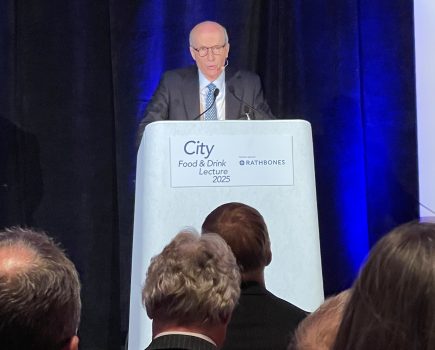In the three weeks leading up to Christmas it is usual for the trade to slow down or even go into hibernation until the New Year. Unfortunately, it feels as though it’s been like this for the past two months, and export execution is minimal for all commodities.
Despite this, feed wheat markets have remained reasonably stable in the past few weeks, but range bound. New crop feed wheat has been the best game in town of late, with ongoing concerns about South American weather, in particular, affecting maize and the delayed autumn plantings in the UK and Europe. This meant that £200 ex-farm for new crop feed wheat was achievable; being £20 over old crop, many farmers kicked off their new crop marketing at that level.
As expected, UK wheat plantings are significantly down on last year at this stage, so much so that some are forecasting an increase in UK spring malting barley plantings of up to 13%. I don’t particularly agree that this will result in such an increase in UK malting barley production.
Firstly, there is a big problem with the availability of the main malting barley varieties of Laureate and Planet. Secondly, in previous years when autumn or winter wheat could not be planted, it was often the case that the unplanted wheat land was not at all suitable for malting barley. So even if there turns out to be a large increase of spring malting barley planted, the chances of it actually producing a malting sample will be much reduced because of the likely heavy nature of the ground involved.
The malting barley market feels like a candle which has been lit at both ends. The UK and Europe have a much reduced availability of malting from the 2023 crop, particularly in Scandinavia, so unlike this year when there was a large carryover of malt and malting barley (so much so that continental maltings have been using old crop up to November) that cannot be the case at the end of June 2024.
So, whereas maltsters were able to work upon a buying need of only 11 months going into harvest 2023, they could change to a 13-month year for harvest 2024. Many maltsters and brewers must still buy for January to June 2024. All over Europe, quality impaired crops will continue to deteriorate as we move through the winter into the spring. Imports to the EU from Argentina are likely to be needed.
So, while the demand for beer remains uncertain, we must not forget that the world barley production is the second lowest in ten years, and within that the amount of usable malting barley has been much reduced. So I expect that demand will hold and supply will dimmish, leading to a firmer malting barley market in the last three month up to June 2024.
The UK wheat market looks balanced on paper, with only a modest surplus. In theory, because of the competitive price, the ethanol producers could use up all of the surplus, with about 40% of the UK winter wheat crop unplanted so far, and this will add support to the old crop market. In turn this may mean farmers will have the option of carrying over old crop to new crop if the old crop does not improve in price, which it should anyway.
At least the premiums for proper milling wheat and malting barley have held up and, irrespective of what might happen to feed values, these premiums should be locked in; the same applies to oats and pulses. Oilseed rape continues to be work in progress. We will still need imports and these are more likely to come from Canada than Australia as their crop has deteriorated. Long term supply issues in Europe, including the UK, where our crop will be lower than last year, argues for holding on.
Some things don’t change. When a grain ship is hit by a missile in Odessa our futures will spike for a day but then recede again. With our island market and with few surpluses to export, we are reasonably insulated from what is going on in the Ukraine and Gaza. In the bigger picture the faceless hedge funds still hold record shorts on the world futures markets and remain unmoved by any production issues that we are aware of, but, like the weather, that can change and they have had a good run so far.
Lastly, I would like to mark the recent passing of our colleague Roger Beard, who worked with me for 40 years and is known to many of you. We offer our sincere condolences to his wife Jean and family.







